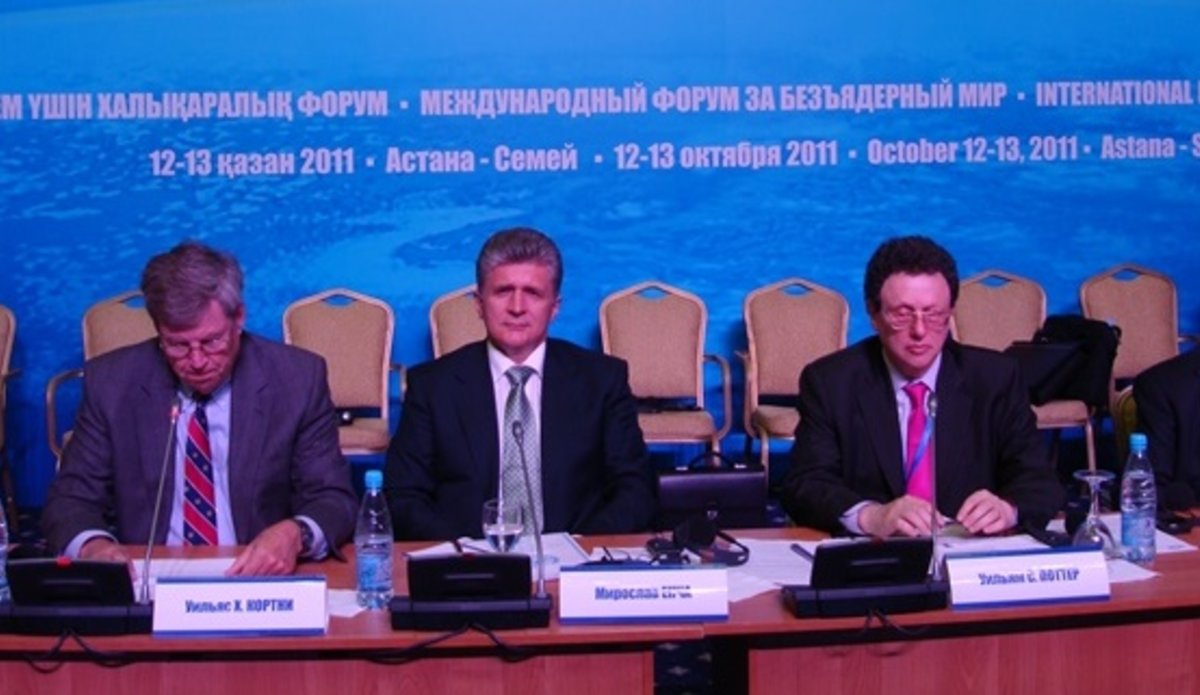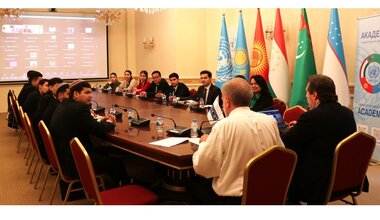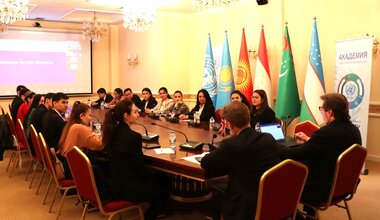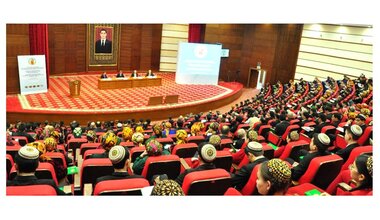SRSG'S speech at the Semipalatinsk Forum for a Nuclear Free-World
ASTANA, Kazakhstan
Session 3 - The establishment of nuclear free zones: problems and perspectives
Dear Minister, Dear Forum participants,
I am very pleased to attend this prestigious Forum. The United Nations is at the forefront of international efforts to establish nuclear free-zones and to create a world free of nuclear weapons.
Last year I was here in Astana to represent the UN Secretary-General at a high level conference addressing the political aspects of ending nuclear testing, and the socio-economic and environmental challenges and prospects for developing the Semipalatinsk region. The Conference participants gave special recognition to President's Nazarbayev's historic decision to renounce, two decades ago, the fourth most powerful nuclear arsenal in the world and close one of the biggest nuclear testing polygons. This was a significant contribution to global nuclear disarmament and non-proliferation processes.
Having suffered for decades from the harmful effects of nuclear tests, Kazakhstan also spearheaded the establishment of an International Day against Nuclear Tests, on 29 August, to mark the anniversary of the day in 1991 when the test site at Semipalatinsk was closed. I believe that, in every country, the celebration of the International Day against Nuclear Tests should serve as an opportunity for promoting educational activities and public awareness about the harmful effects of nuclear tests.
Ladies and gentlemen, I am impressed by how the countries of Central Asia have come together to contribute to global nuclear disarmament and non-proliferation efforts. On 8 September 2006, Kazakhstan, Kyrgyzstan, Tajikistan, Turkmenistan and Uzbekistan met at the Semipalatinsk test site to sign the Central Asian Nuclear-Weapon-Free-Zone Treaty, which entered into force on 21 March 2009. The treaty is a legally binding commitment not to manufacture, acquire, test, or possess nuclear weapons. This was a landmark moment for Central Asia and a valuable contribution towards regional and global peace and stability. Significantly, the Central Asian Nuclear-Weapons-Free Zone Treaty is the first such instrument in the northern hemisphere and an inspiration for other countries and regions of the world to establish similar legal security guarantees.
The five Central Asian states have also ratified the Comprehensive Nuclear Test Ban Treaty, which would establish a universal and legally binding ban on nuclear weapons testing. However, the CTBT has not yet entered into force. It is the goal of Secretary-General Ban Ki-Moon, who was deeply moved during his visit to Semipalatinsk in April 2010, to ban nuclear tests for good and to work towards a world free of nuclear weapons.
Proceeding from the example shown by the countries of Central Asia in the area of nuclear disarmament, our Regional Centre will continue to cooperate closely with them to address threats to security, encourage dialogue and joint solutions that will promote and strengthen peace and stability in Central Asia.
I am proud to join you on this journey to a nuclear-weapon-free world. It is our shared responsibility to future generations to tirelessly work towards this goal. I look forward to the continued leadership of the countries of Central Asia in this effort.
Thank you.
 UN
UN





